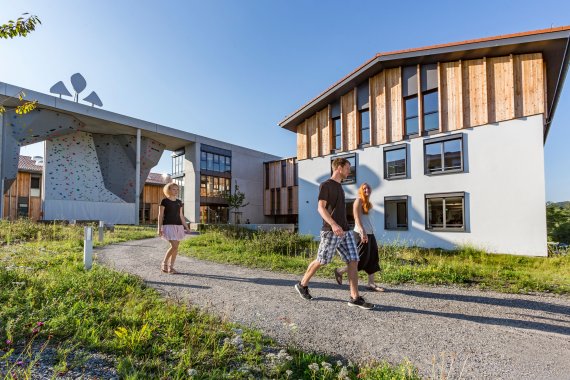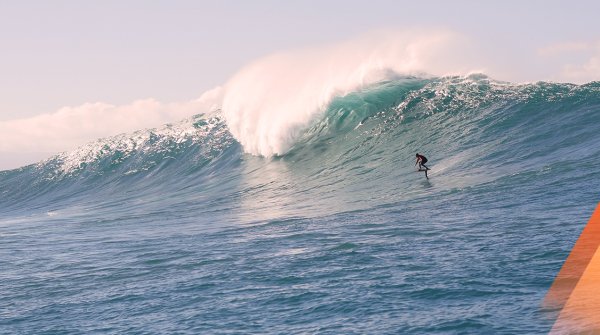
They exist in the outdoor industry, the independent family businesses. Shoe manufacturer Meindl, for example, is run by the ninth generation of the Meindl family, currently by brothers Lukas and Lars. Outdoor equipment manufacturer Vaude from Tettnang on Lake Constance is also 100 percent family-owned. Since 2009 Antje von Dewitz Her father Albrecht von Dewitz founded Vaude in 1974.
On the other hand, many complex company constructs and brand families also operate in the outdoor industry.
Some stringently cover the outdoor industry or even a specific segment within it, while others encompass a heterogeneous portfolio. In German-speaking countries, for example, the outdoor and sports brands Deuter, Maier Sports, Ortovox and Gonso belong to the Franconian Schwan-Stabilo Group, which also manages two completely different product categories with the Stabilo stationery brand and the Schwan Cosmetics brand.
At the South Tyrolean Oberalp Group, on the other hand, there is a common core across all brands: mountain sports. From the company's point of view, the latest addition Evolv, a climbing shoe manufacturer from the USA, therefore fits perfectly into the portfolio with Salewa, Dynafit, Pomoca and Wild Country.

Both of these groups are family-owned, with the Schwanhäußer family behind Schwan-Stabilo and Oberalp still headed by founder Heiner Oberrauch. With annual sales of around 700 million euros (Schwan-Stabilo 2017/18, of which approx. 170 million in the "Outdoor" division) and just under 200 million euros (Oberalp 2017), they are still comparatively small players compared to major international groups such as the US-based VF Corporation, founded in 1899.
It currently holds the rights to around 20 clothing brands, divided into "Outdoor", "Active" and "Work". The best-known outdoor brand is The North Face, while Timberland, Eagle Creek and Icebreaker are also part of this mega-company, which generated sales of around 12.5 billion euros in fiscal year 2018/19.

The Amer Sports Group is well below this, with sales of around 2.7 billion euros at last count. The Finns have twelve outdoor and sports brands, including Peak Performance, Arc'teryx, Salomon and Atomic. There is no doubt that Amer Sports is a heavyweight in the outdoor and sports business, yet the group was bought out in the spring by a consortium led by Anta Sports, China's largest sporting goods manufacturer.
One of the largest European groups is Fenix Outdoor AG, now based in Switzerland, with annual sales of around 600 million euros. Its owner, with a 53 percent share, is Martin Nordin, son of Fjällräven founder Ake Nordin. Fjällräven is one of ten sub-companies of Fenix - along with other outdoor brands such as Primus or Hanwag.
In 2015, Fenix also "swallowed" the crisis-ridden German outdoor retailer Globetrotter: "If we hadn't done that, Globetrotter wouldn't exist today," says Nordin. Globetrotter managed to turn itself around under Fenix, and is making a name for itself in 2019 with new openings as part of its "City" concept.

Germany's market leader Jack Wolfskin found itself in a difficult phase when a group of hedge funds took over the Idstein-based company in 2017. It ensured debt relief and provided capital in the amount of 25 million euros. Jack Wolfskin managed the turnaround, reporting sales and profit increases again for 2018.
The German outdoor brand had only been bought by US investor Blackstone in 2011 and then - according to the analysis of many industry observers - got into trouble because the internationalization strategy pushed by the investor did not work. In the meantime, there has been the next change of ownership. U.S. golf equipment supplier Callaway bought Jack Wolfskin at the end of 2018 for 418 million euros. So, after the pure financial investors, a "strategic investor" with a longer-term interest is now at the helm: a manufacturing company that specifically wants to expand its product portfolio.
This is also the background to the recently completed acquisition of the small Austrian outdoor footwear brand Dachstein by the Finnish Luhta Group, which wants to add a footwear brand to its range, which has so far focused on clothing. Conversely, Dachstein hopes to benefit from Luhta's international distribution network with its own organizations in many countries and to be able to expand more strongly beyond the German-speaking region.
The different variants of "financial investor" and "strategic investor" can also be well illustrated by the example of Ledlenser. In 2013, the U.S. multi-tool brand Leatherman took over the Solingen-based specialist for headlamps and flashlights. At the end of 2018, Leatherman withdrew again, and the investment companies Afinum and Invision stepped in. Head of Marketing Oliver Keßler explains that both the takeover and the withdrawal of Leatherman - in addition to the assumption of synergies that did not materialize as desired - were also linked to the person of Leatherman's founder and CEO: "Tim Leatherman had wanted lamps in his portfolio for a long time and was the driving force behind the takeover," explains Keßler. Now the 71-year-old wants to gradually withdraw from the business.
The new investors, on the other hand, are "private equities that take stakes in companies that are doing well. They believe and expect that in the end they will be able to extract more than they have invested. Because, that's just reality, after a few years they will sell the company again."
The perspective of such financial investors is usually more short-term. "Of course, they keep a close eye on and inform themselves about the company's strategy, but they give us a free hand in developing the brand," says Keßler, describing the cooperation.
The different variants "financial investor" and "strategic investor" can also be well illustrated using Ledlenser as an example. In 2013, the US cult multi-tool brand Leatherman took over the Solingen-based specialist for headlamps and flashlights. At the end of 2018, Leatherman withdrew again and the investment companies Afinum and Invision entered the market. Marketing Director Oliver Keßler explains that both the takeover and the withdrawal of Leatherman - in addition to the assumption of synergies, which could not be realised as desired - were also associated with the person of the Leatherman founder and boss: "Tim Leatherman had long wanted to have lamps in his portfolio and was the driving force behind the takeover," explains Keßler. Now the 71-year-old wants to gradually withdraw from the business.
The new investors, on the other hand, are "private equities that invest in companies that do well. They believe and expect that in the end they can pull out more than they have invested in investment. Because, that's just reality, after a few years they'll sell the company again."
The perspective of such financial investors is usually rather short-term. "Of course, they observe and inform themselves precisely about the company's strategy, but they give us a free hand in developing the brand," says Keßler, describing the cooperation.
 Sports BusinessBeyond Logos: How Sports Brands Build Communities
Sports BusinessBeyond Logos: How Sports Brands Build Communities
- ISPO awards
- Mountain sports
- Bike
- Design
- Retail
- Fitness
- Health
- ISPO Job Market
- ISPO Munich
- ISPO Shanghai
- Running
- Brands
- Sustainability
- Olympia
- OutDoor
- Promotion
- Sports Business
- ISPO Textrends
- Triathlon
- Water sports
- Winter sports
- eSports
- SportsTech
- OutDoor by ISPO
- Heroes
- Transformation
- Sport Fashion
- Urban Culture
- Challenges of a CEO
- Trade fairs
- Sports
- Find the Balance
- Product reviews
- Newsletter Exclusive Area
- Magazine





